The streets sleep after rush-hour traffic trickles away, but stray trucks bump and bang on uneven pavement, interrupting their peace. They have a portable DVD player to help drown the noise until they fall asleep and stay warm with blankets piled high around them. But by 7 am building maintenance arrives to clean the sidewalk so they must leave.
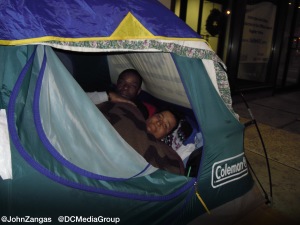
Homelessness began for Panama in 2009 when her home was foreclosed on. “I tried to make a deal with the bank but they threw me out,” she says in dismay. For her and her husband, home life starts after 6 pm in their small two-person tent Byron puts up nightly on the sidewalk. “My husband builds it up every night,” she says touching his hand, hers over his.
Panama comes across as harsh. but as she opens up, she shows the tenderness of a mother. With her big heart she offers everyone in the coffee shop a green tea from a gift card which has only eight dollars on it. “My husband and me are really trying, but he has a criminal background.” She speaks of the difficulties he faces getting employment with his history. “How can you expect a man to get a job when they keep turning him away?”
Byron looks down at his hands quietly.
Panama speaks of her deceased friend Elgin who came down with meningitis last year and succumbed four weeks later. “Homeless people have a short life expectancy and they are gone.” She pauses as tears well and wipes them away quickly with the backs of her fingers. “Most homeless can’t manage the diseases they get out here,” she says. She and Elgin were close before Byron got out of prison. They had been soulmates for 15 years, and he still took care of her even after she got together with Byron.
“I been out here a lotta years, so I have a lotta people that help me,” she says. “Sometimes I go stay with my daughter who graduated from the police academy in March,” she says proudly. But it’s tentative as her daughter has children of her own. She says, “My daughter isn’t happy I’m on the streets–she has to live her own life–she’s on her own now.”
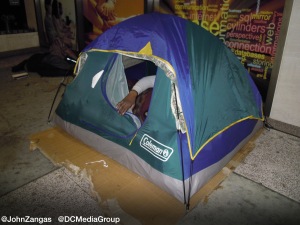
The streets have trapped Panama and Byron in their relentless grip. She says they applied for housing assistance but the bureaucratic wheels turn frustratingly slow. And the numbers on the street seem to be growing. “Every year a new wave comes down from Baltimore or New Jersey, ” she said.
She attributes her survival this long to her belief in God. “We don’t just go and take, we only use what we need-we leave it in Gods hands-you know Jesus was homeless too?” she says.
Street life for Panama has been both an economic welfare issue as well as a health issue. Health service access is slow she says and she knows many who have given up trying to get housing and healthcare. Obtaining food stamps requires a physical address inherently impossible for the homeless.


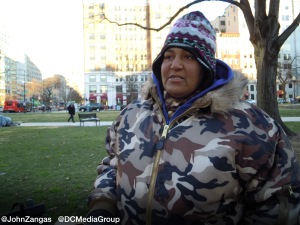
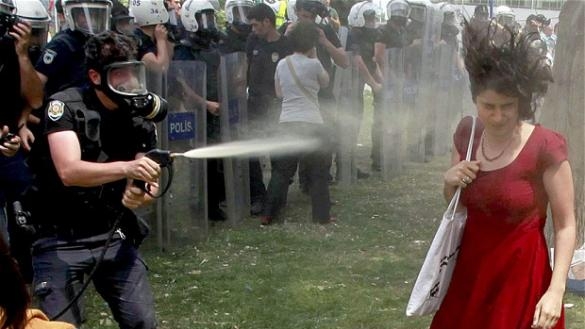

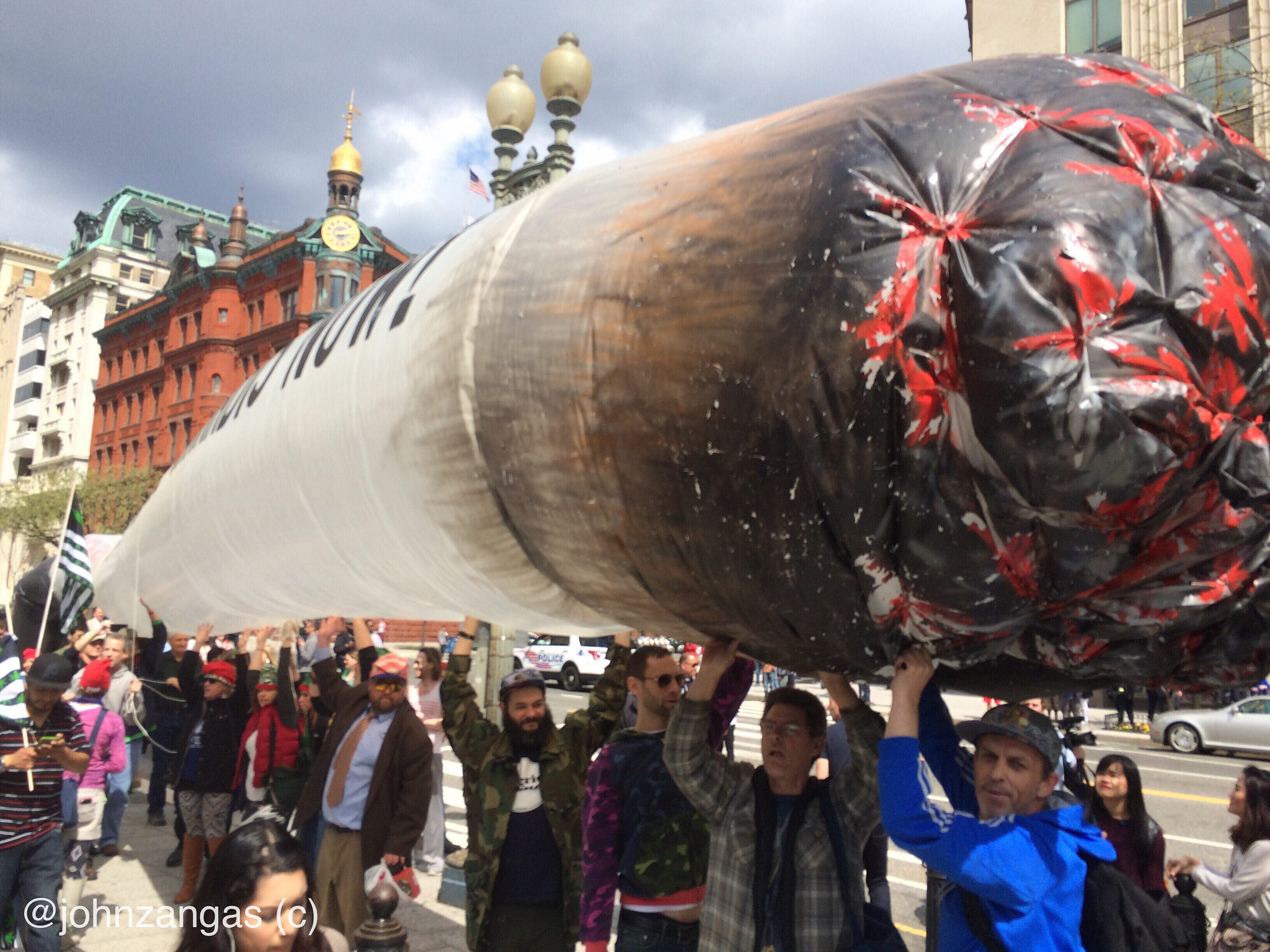
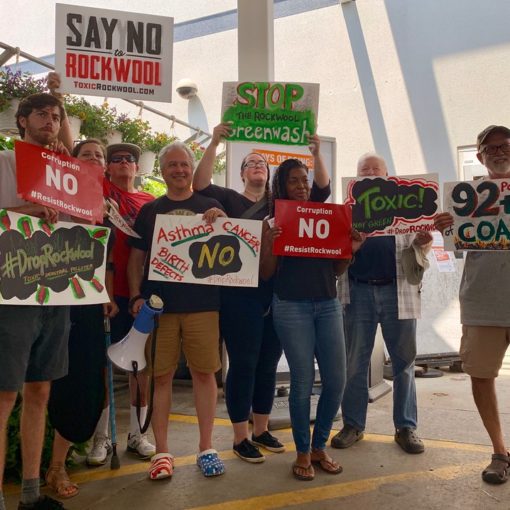
One thought on “Homeless For The Holidays — Life in A Tent — Part IV”